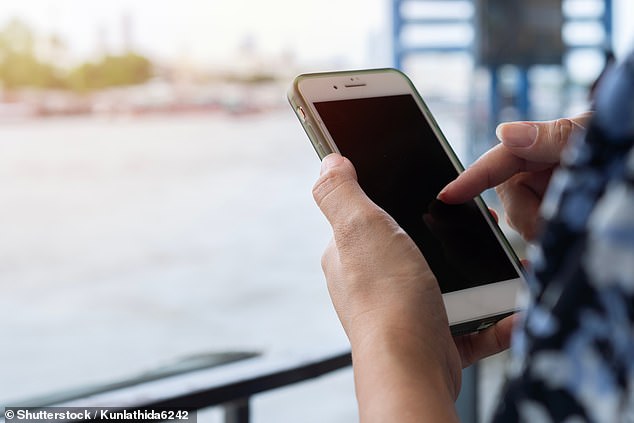[ad_1]
Move over Dr Google, it’s Dr ChatGPT‘s time to shine.
More than 10 million Britons are now using AI chatbots like ChatGPT or Microsoft Copilot for personal mental health support, new research suggests.
The report also found almost of third of adults have already turned to artificial intelligence to to uncover what their health symptoms might indicate.
It comes as latest NHS figures, released today, show there were almost 440,000 new referrals for mental health services in England in May, with 2.1million now receiving support.
Yet, around five million Britons suffer from anxiety or depression, and some 1.2 million are waiting to see an NHS mental health specialist.
Experts have long been divided by the use of AI for mental health support.
Smartphone apps designed to support people with anxiety and depression are being rolled out in parts of England, and the software is even being offered to some patients stuck on NHS waiting lists as part of an ongoing trial.
But some are alarmed that patients who need proper psychiatric care may resort to the apps instead of getting the help they need.

More than 10 million Britons are now using AI chatbots like ChatGPT or Microsoft Copilot for personal mental health support, new research suggests
Others fear the lack of human involvement could even exacerbate mental health issues in vulnerable people.
According to the report from cybersecurity firm NymVPN, around a fifth of Britons (19 per cent)—equivalent to 10.5 million adults—are now using AI chatbots for mental health therapy.
These include ChatGPT, Google Gemini and Microsoft Copilot.
Three in 10 people (30 per cent) have also entered physical symptoms and medical history into AI chatbots to find out what might be wrong with them.
Roughly one in six (18 per cent) are also using the technology for relationship advice, including how to navigate break-ups and tricky situations with their partners, NymVPN said.
But almost half of the 1,000 adults surveyed, said they were ‘cautious’ when it comes to their interactions with AI and the potential privacy risks.
A quarter (24 per cent) also admitted they would not trust an AI chatbot on the NHS with their personal information or do the job as well as a human.
Harry Halpin, CEO of cybersecurity experts NymVPN, said: ‘More people than ever are looking to their GP to provide mental health support, yet budgets for these services are being cut.
‘This demand is pushing millions of people to turn to AI to fill in the gaps.
‘The likes of ChatGPT and Google Gemini are now so frequently used that they have ventured beyond being a useful tool to being treated as therapists, doctors and relationship coaches.’
He added: ‘If you are using AI for health and relationship advice, do not give your name or the names of loved ones, give general details and summaries rather than specifics about events, feelings or symptoms.
‘Ensure all privacy features are turned on, consider using a VPN to protect your location and do not share accounts.
‘Some chatbots, like ChatGPT, allow your conversation history to inform its advice, meaning that you could end up sharing details of your personal life with whoever you share the account with.’
Earlier this year in May, the NHS announced it was planning to open a network of ‘calm and welcoming’ mental health A&Es across England to treat patients who are in crisis.
The specialist units will be offer around the clock care to relieve pressure on already overcrowded hospitals and emergency services.
Around 250,000 people went to A&E last year due to a mental health crisis – with around a quarter facing a wait of 12 hours or longer.
The smartphone app Wysa has also already been made available to thousands of teenagers in West London to help them cope with mental illness.
When a user logs on, the app asks how their day is going.
If they’re feeling anxious, the chatbot guides them through meditation and breathing exercises, for example, to help ease their state of mind with language designed to portray empathy and support.
The app is also being used in a £1million trial for patients on the NHS mental health waiting list in North London and Milton Keynes, comparing their wellbeing with other patients on the waiting list without access to the app.
[ad_2]
This article was originally published by a www.dailymail.co.uk . Read the Original article here. .

